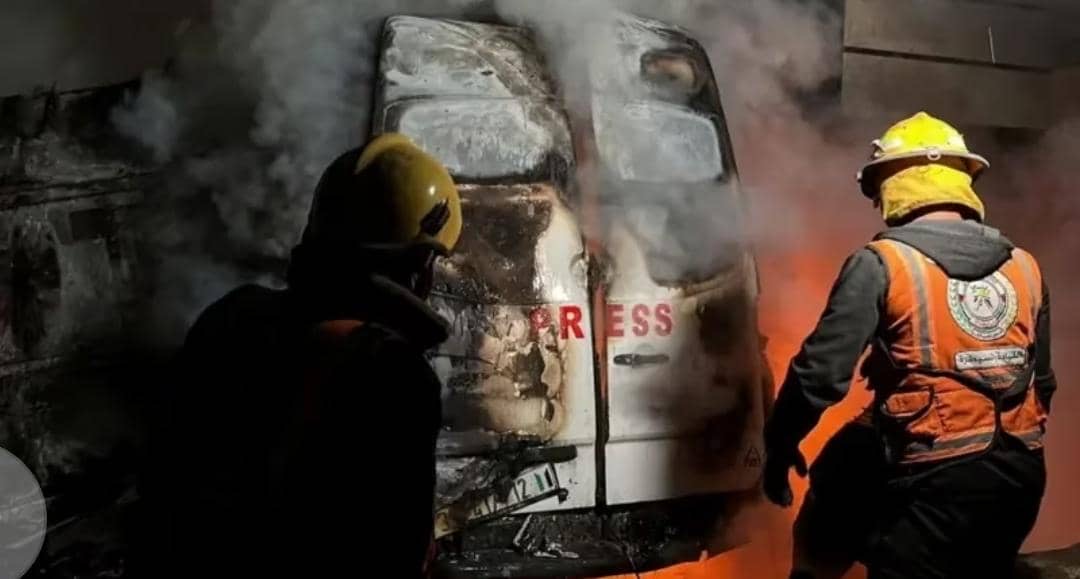TEHRAN – Iran yesterday removed seals placed by the UN nuclear watchdog at a key atomic plant, allowing the facility to return to full capacity and raising the stakes in a standoff with the international community.
The International Atomic Energy Agency (IAEA) gave the final go-ahead for the removal of seals it put on the uranium conversion facility on the outskirts of Isfahan when Iran suspended sensitive nuclear activities in November. Iran sparked grave international concern when it ended the nine-month suspension of uranium conversion on Monday but up until the cutting of the metal seals on key machinery the resumption has only been partial.”We have started,” Iran’s atomic energy agency vice-president Mohammad Saidi told AFP.”It is happening under the supervision of the Agency.”Throughout the current escalation of tensions Iran has been at pains to emphasise it was resuming conversion activities in concert with the IAEA, whose inspectors have installed surveillance equipment to monitor the process.While it was Iranian workers who removed the seals, the process has taken place under IAEA supervision.Mindful of playing by international rules, Iran waited for the agency to finish installing surveillance equipment before breaking the seals.”The seals are in the process of being cut.Once the removal of the seals is completed we will confirm this to the (IAEA) board,” IAEA spokeswoman Melissa Fleming told AFP in Vienna.The IAEA “told us in a letter that there was no obstacle and that (the agency) authorises us to remove the seals, which will be returned to them afterwards,” said Saidi.The move comes as the European Union tries to win approval at a emergency IAEA meeting in Vienna for a draft resolution calling on Iran to reverse its decision to push ahead with the nuclear fuel work.Indicating the difficulties of forging an agreement, a planned formal IAEA meeting Wednesday was cancelled because diplomats remained locked in closed-door talks on the EU resolution.Conversion turns uranium ore or yellowcake into a feed gas for making enriched uranium, which can be the fuel for reactors or the explosive core of atomic bombs.Iran had suspended uranium conversion and enrichment as a goodwill gesture during nine months of talks with the European Union aimed at staving off UN Security Council intervention.The prospect of the talks succeeding has been dealt a severe blow by Iran’s resumption of conversion.Iran emphasises that its right to the nuclear fuel cycle is legally enshrined under the nuclear Non-Proliferation Treaty and it has infringed no international rules by resuming the activities.The United States accuses Tehran of seeking to manufacture a nuclear weapon, a charge vehemently denied by Iran, but Washington points to Iran’s past failure to transparently report nuclear activities as grounds for suspicion.New President Mahmood Ahmadinejad has described the offer of nuclear, commercial and political cooperation made on Friday by the Europeans in exchange for Iran renouncing the activities as an “insult to the Iranian people”.”The Europeans talk as though the Iranian people were a backward people, as if they were still in the last century when they dominated our country,” he seethed.- Nampa-AFPIran sparked grave international concern when it ended the nine-month suspension of uranium conversion on Monday but up until the cutting of the metal seals on key machinery the resumption has only been partial.”We have started,” Iran’s atomic energy agency vice-president Mohammad Saidi told AFP.”It is happening under the supervision of the Agency.”Throughout the current escalation of tensions Iran has been at pains to emphasise it was resuming conversion activities in concert with the IAEA, whose inspectors have installed surveillance equipment to monitor the process.While it was Iranian workers who removed the seals, the process has taken place under IAEA supervision.Mindful of playing by international rules, Iran waited for the agency to finish installing surveillance equipment before breaking the seals.”The seals are in the process of being cut.Once the removal of the seals is completed we will confirm this to the (IAEA) board,” IAEA spokeswoman Melissa Fleming told AFP in Vienna.The IAEA “told us in a letter that there was no obstacle and that (the agency) authorises us to remove the seals, which will be returned to them afterwards,” said Saidi.The move comes as the European Union tries to win approval at a emergency IAEA meeting in Vienna for a draft resolution calling on Iran to reverse its decision to push ahead with the nuclear fuel work.Indicating the difficulties of forging an agreement, a planned formal IAEA meeting Wednesday was cancelled because diplomats remained locked in closed-door talks on the EU resolution.Conversion turns uranium ore or yellowcake into a feed gas for making enriched uranium, which can be the fuel for reactors or the explosive core of atomic bombs.Iran had suspended uranium conversion and enrichment as a goodwill gesture during nine months of talks with the European Union aimed at staving off UN Security Council intervention.The prospect of the talks succeeding has been dealt a severe blow by Iran’s resumption of conversion.Iran emphasises that its right to the nuclear fuel cycle is legally enshrined under the nuclear Non-Proliferation Treaty and it has infringed no international rules by resuming the activities.The United States accuses Tehran of seeking to manufacture a nuclear weapon, a charge vehemently denied by Iran, but Washington points to Iran’s past failure to transparently report nuclear activities as grounds for suspicion.New President Mahmood Ahmadinejad has described the offer of nuclear, commercial and political cooperation made on Friday by the Europeans in exchange for Iran renouncing the activities as an “insult to the Iranian people”.”The Europeans talk as though the Iranian people were a backward people, as if they were still in the last century when they dominated our country,” he seethed.- Nampa-AFP
Stay informed with The Namibian – your source for credible journalism. Get in-depth reporting and opinions for
only N$85 a month. Invest in journalism, invest in democracy –
Subscribe Now!






